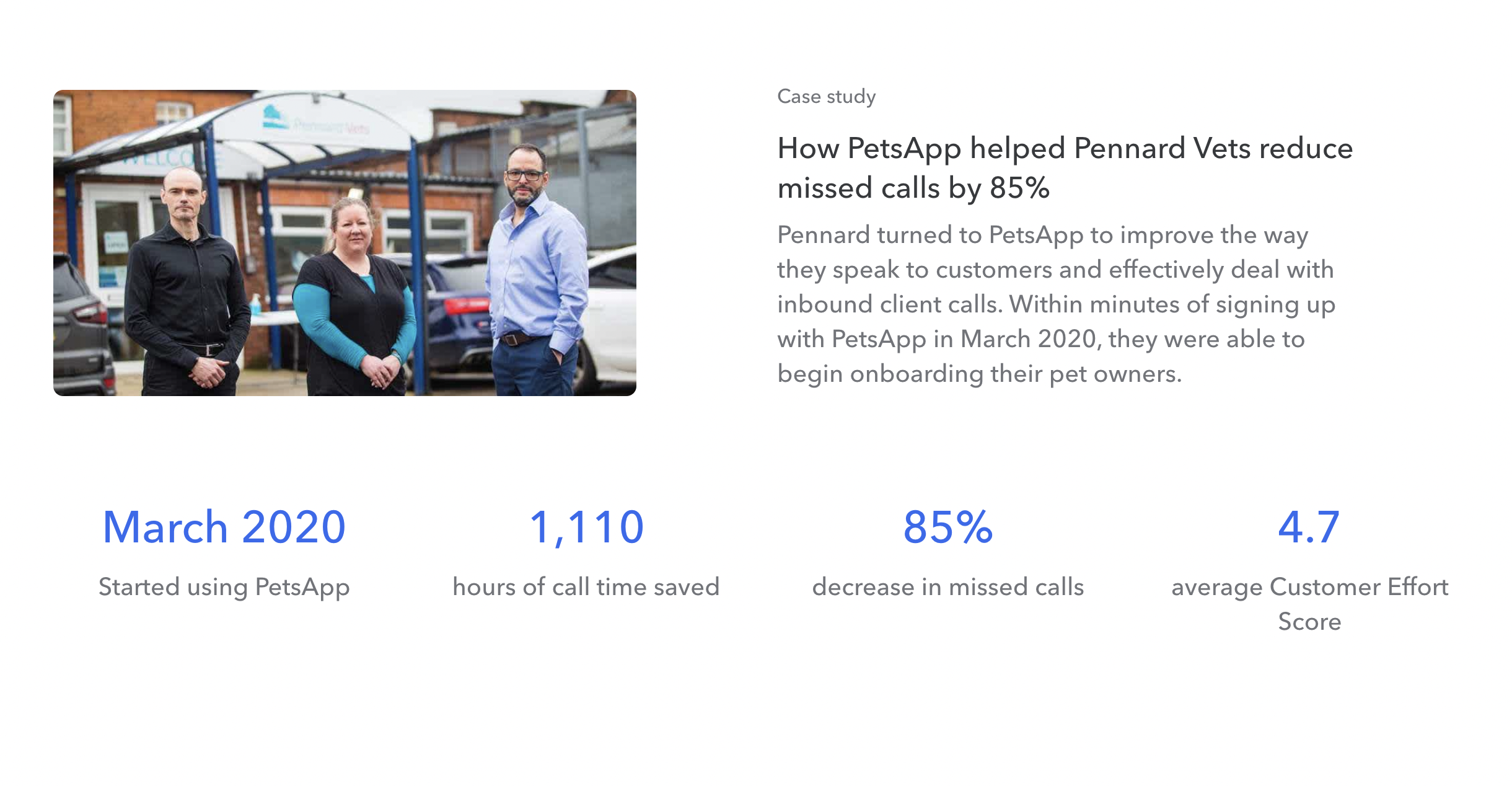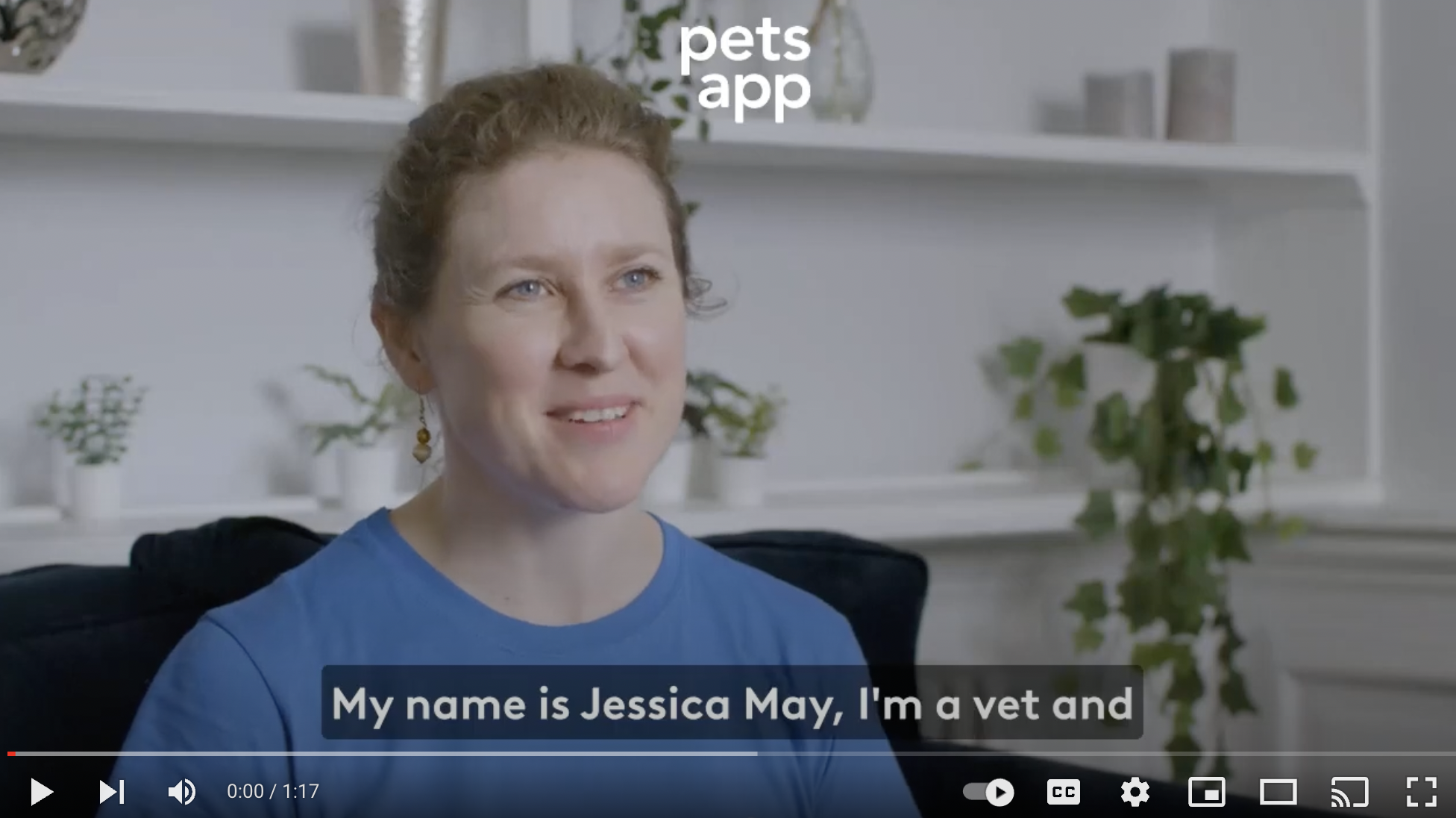All any pet parent wants for their furry companions is to ensure that they live the longest, happiest and healthiest lives possible. As a…
Read moreThe New Flexible Working legislation: A Guide for Veterinary Teams
PetsApp Together Community Collaboration·12 April 2024
The new flexible working legislation that came into effect late, last week, in the UK has the potential to significantly reshape the landscape of veterinary by providing teams with greater flexibility. For the veterinary industry specifically, which traditionally involves on-site clinical work and long hours, the new legislation presents both challenges and opportunities. Bringing together the minds of the greater PetsApp Together community we've created a new flexible working legislation guide for veterinary teams.
Work-Life Balance
The veterinary profession is known for its demanding schedules and high levels of stress. The ability to request flexible working arrangements can help veterinary professionals achieve better work-life balance by allowing them to adjust their schedules to accommodate personal commitments, family responsibilities, and self-care activities. This kind of work life balance can lead to improved job satisfaction, mental well-being, and retention rates within your veterinary team. But the simple facts are that most clinics are understaffed and dealing with a high level of demand for the services they offer.
A recent report by RCVS, highlighted by community KOL Dave Nicol, revealed that the top 3 reasons for veterinary professionals to leave the industry are:
•Stress
•Lack of recognition
•Poor work life balance
Incorporating an all in one client communication platform into your clinic could help you relieve the levels of stress on your veterinary teams, increase the opportunities for positive recognition and work satisfaction as well as promote a better work life balance by clawing back as much as 3 hour per day for your team.

"In the veterinary community, I have many conversations with people who feel that work-life integration is ever elusive. With these upcoming changes to flexible working laws, I believe we could be on the brink of a transformative shift. Let's seize this opportunity to empower every veterinary professional to find ways of working that suit them as individuals, normalising the notion that 'VetMed' can adapt and flex to fit in with our unique lives. By embracing flexibility, we can foster a culture of wellbeing that benefits both individuals and the profession as a whole - as well as the impact to our patients too. Of course, any new changes take time for everyone to figure out, and I have no doubt that there will be more lessons, but I hope to see this bringing about positive change and useful conversations."
Dr. Katie Ford: Director, Founder and Coach at Vet Empowered
Recruitment and Retention
Offering flexible working options can make veterinary practices more attractive to job seekers, particularly those who prioritise work-life balance and flexibility. In a competitive job market, the ability to accommodate flexible working arrangements may give veterinary practices a competitive edge in recruiting and retaining top talent, including veterinarians, technicians, and support staff.
Sarah Armstrong, HR Consultant to flexible working consultancy Flexee says:
“These legislative changes are an important step - opening up more discussion about greater flexibility in the workplace and requiring employers to go further in considering alternative working arrangements. It is important practices think about the implications though - not just about updating their policies and training managers, but ensuring they have the right culture and tools to support an increasingly complex resourcing profile within their staff team. Ultimately this is a great opportunity for veterinary practices to enhance their Employee Value Proposition and differentiate themselves in the employment marketplace”
Creating the right balance of online and offline representation for your veterinary practice can go a long way to help gain back missed lunches and allow teams to interact with their patients and clients in ways that not only better suit them as both the person and professional but also allow them to better engage with those they are caring for. By using your digital services efficiently and incorporating the right tools in practice you can better support your veterinary teams by offloading unnecessary workload such as appointment bookings, appointment schedules and general enquiries.
“When I started my first job as a vet the hours were long, hard and I never got my time back. It was totally inflexible. I missed out on social events, family time and on sporting competitions. This job is already tough and flexibility is a no brainer to me. If my staff ask me for something and I can give it then I will. Making them miserable benefits no one. My motto is; if we can, we will.”
Vanessa Waite, Director of The Vet Station in Molesey
Operational Challenges
While flexible working arrangements offer numerous benefits, they also present operational challenges for veterinary practices. The nature of veterinary work often requires hands-on care, teamwork, and coordination among staff members. Implementing remote work or flexible hours may require adjustments to scheduling, staffing, and communication protocols to ensure continuity of care and maintain clinic efficiency.
The Webinar Vet, CVO and Cofounder Anthony Chadwick's advice is clear:
"The more we can encourage flexible working in the profession the better. We are a conservative profession but with the changes in the veterinary profession over the last 20 years, it's important that we move with the times. This should help to keep more people in the profession. Some at home work may be possible, doing triage on the phones or ringing clients re lab results. We need to move to make our profession more modern."
Why not check out our recent run down of top applications for veterinary teams, to see where you can lean on digital solutions to help elevate the support you offer your team and the patients they support.
Flexible working arrangements do not need to have a set pathway or create a scenario where only one side wins. In fact having flexibility amongst your veterinary team can also benefit pet owners by actually increasing access to veterinary care, without upping the workload for your clinic. Such arrangements could include offering remote work options for administrative staff including telemedicine consultations as an additional service, extending clinic open hours so offer both a choice of working hours to team members, reducing rush hour periods and making it easier for pet owners to schedule appointments, access veterinary advice, and receive timely care for their animals, particularly in rural areas or underserved communities. Async chat and the use of AI features such as CoPilot can also reduce missed calls and overall call rates as well as making client engagement an easier more enjoyable element of the work vet teams do.
Compliance with Regulations
Veterinary practices must ensure compliance with regulatory requirements and professional standards when implementing flexible working arrangements. This includes maintaining standards of care, adhering to data protection regulations for telemedicine consultations, and addressing any legal or liability concerns associated with remote work or flexible hours.
Training
Veterinary practices may need to provide training and guidance to staff members on how to effectively navigate flexible working arrangements while ensuring compliance with regulatory requirements and maintaining standards of care. This could involve educating staff on best practices for remote work, telemedicine consultations, data protection, and professional conduct in a flexible work environment.
Impact on Patient Care
While flexible working arrangements offer benefits in terms of employee satisfaction and well-being, veterinary practices must ensure that patient care remains a top priority. Practices may need to implement strategies to maintain quality of care and ensure seamless communication and collaboration among team members, even in a flexible work environment.
Customer Success Support
When onboarding new tech to help better support your patients and veterinary teams, the pack's number one advice is to make sure you've a dedicated customer success professional, to help you effortlessly, efficiently and successfully implement and integrate it into your practice. Dr. Jessica May says that a good Customer Success Manager should bring you on a journey to optimise the use of any new tech tools with a clear understanding of what that should look like in a clinical setting.
Overall, the new flexible working legislation in the UK has the potential to reshape the veterinary industry by promoting a more flexible and adaptable approach to work arrangements. By embracing change, whether that be to offer more flexible working contracts or to look at solutions like PetsApp as a tool for easing up the load on veterinary teams, practices could not only improve employee well-being, but also in turn enhance client satisfaction, and ultimately, continue to deliver efficient, high-quality care.
Latest from the blog
What if your most powerful marketing strategy isn’t a campaign, but the culture you create? Marketing Mindset: Culture Versus Campaigns…
Read moreWhen it comes to veterinary client communication, ease, reliability, and efficiency make all the difference. That’s why PetsApp is proud to…
Read more